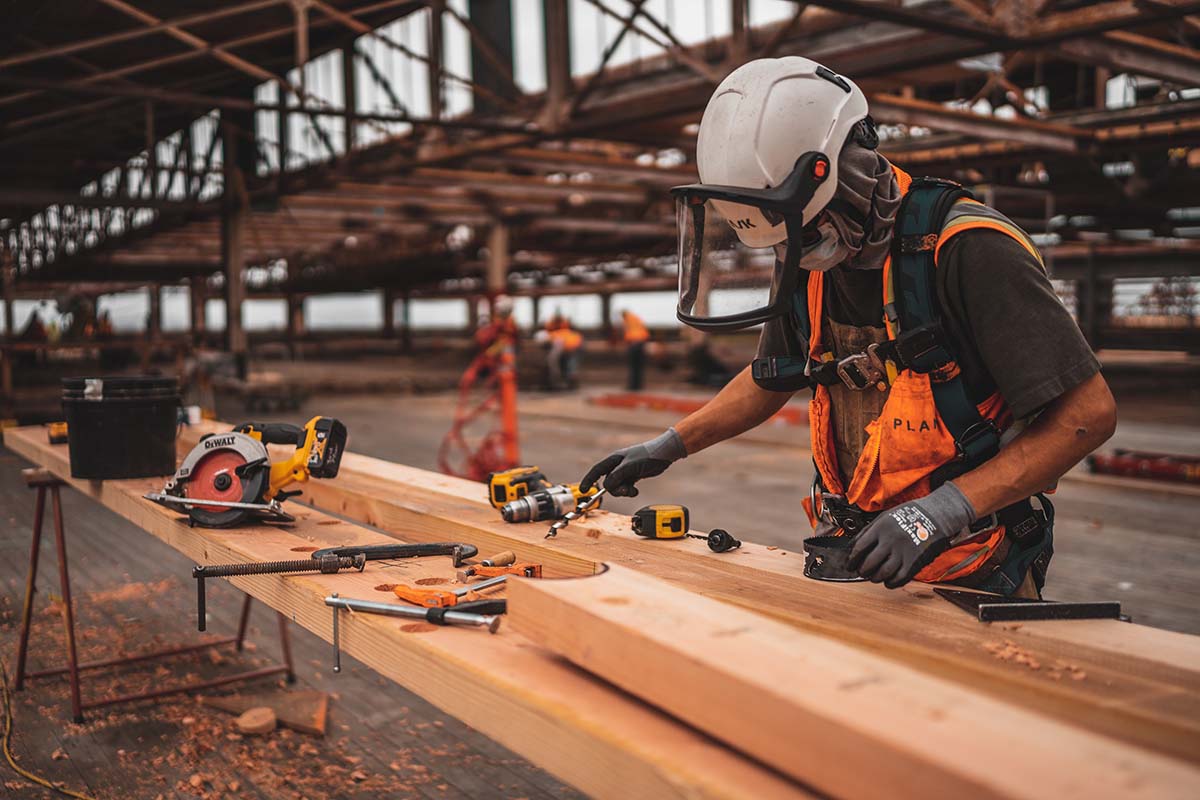Construction projects come with complications, tight deadlines, and high expectations, making proper planning absolutely necessary. One of the most important elements in ensuring a successful construction project is understanding how to use guarantees as part of the development process. While many different types of guarantees are available, they each have been designed to protect investors from unexpected risks or additional costs during a construction project’s timeline.
In our comprehensive exploration of guarantees within the construction industry, we will delve into the essential role and significance of bid bonds, shedding light on the purpose of a bid bond in securing successful project contracts. In this blog post, we will deeply dive into the role guarantees play in creating success out of any construction or development endeavor.
In the intricate world of construction contracts, it’s essential to grasp the purpose of a bid bond as more than just a financial assurance; it stands as a cornerstone for trust and commitment between contractors and project owners, ensuring the project’s integrity from inception to completion.
The Role of Guarantees in Construction: What is a Construction Guarantee
Before embarking on a construction project, it’s important to have a sense of security and confidence that the job will be done right. In this case, a construction guarantee can provide the extra assurance you need. Simply put, a construction guarantee is a promise a contractor makes to complete a project according to the agreed-upon terms and conditions.
But to make this promise more concrete, commercial surety bonds are usually issued to back it up. This is essentially a contract between the contractor, the client, and a third-party surety company that guarantees that the contractor will fulfill their obligations. In the event that something goes wrong, the surety company will step in and make sure the project is completed according to the agreed-upon terms. The bond is like a safety net for both parties, ensuring that everyone involved gets what they’re paying for.
Alternatively, you can also use a performance bond as another form of guarantee. This insurance policy provides the same level of protection but varies slightly in terms of when and how it’s used.
When Should You Use a Construction Guarantee?
A construction guarantee is generally recommended for any project estimated to be valued at over $50,000. This is because projects of such size typically require multiple subcontractors, materials, and other services, making the risk of failure greater.
When deciding whether or not to use a guarantee for a construction project, take into account the following factors:
- The complexity of the project
- The reputation and experience of the contractor
- The size and scope of the project
- The financial security of the contractor
- The risk involved in completing the project.
Benefits of Using a Construction Guarantee
If you undertake a construction project, you should know potential risks are always involved. But thanks to a construction guarantee in place, you can feel secure that the contractor will complete the job on time and to your satisfaction.
Here are some of the key benefits of using a construction guarantee:
- Reduces risk for all parties involved: With a guarantee in place, everyone knows what they’re getting into. The client is assured that their project will be completed, while the contractor knows that they will be held accountable for any mistakes or delays.
- Strengthens relationships between all parties: A guarantee provides a sense of trust and security, which strengthens the relationship between all parties involved in a construction project. It also eliminates miscommunication and ensures everyone is on the same page from start to finish.
- Increases transparency: A guarantee also ensures that all parties are aware of the expectations and timeline for a project, eliminating any confusion or miscommunication. This level of transparency keeps everyone accountable and allows for easy resolution in case of disagreements.
- Reduces costs: Construction guarantees can reduce costs by eliminating any potential risks that could arise during a construction project. This will save money in the long run, as the guarantee covers any unexpected costs.
Overall, utilizing a construction guarantee is surely a smart investment for all parties involved in a construction project.
Establish the Terms and Conditions of the Guarantee
When constructing a construction guarantee, you must establish clear terms and conditions to which everyone involved should agree. This includes the duration of the guarantee, the terms for resolving disputes, and any other relevant clauses that could potentially arise during a project.
Maybe you also want to go over the contract details with your legal team to ensure you’re fully aware of any potential risks and responsibilities associated with the construction guarantee. Of course, make sure all parties involved sign and agree to the guarantee before beginning to work on the project.
Determine Which Type of Guarantee is Right For Your Project
Several types of guarantees are available for construction projects, and it’s important to choose the right one that best suits your needs. Aside from surety bonds, here are some of the most popular types:
- Performance Bond: This type of bond guarantees that the contractor will complete the project according to its specifications. It’s typically issued for larger projects, such as building or bridge construction.
- Bid Bond: This type of bond guarantees that the contractor awarded the project will fulfill their obligations. It is often used in public projects, where multiple bidders compete for the job.
- Payment/Labor/Material Bond: This type of bond ensures that subcontractors and suppliers involved in a project will be paid promptly and in full. Note that these bonds are usually used for contracts over a certain value, usually $350,000 or more.
Common Pitfalls to Avoid
To ensure you get the most out of your construction guarantee, avoiding any pitfalls is important. Here are some tips to keep in mind:
- Make sure all parties involved in the project have read and understood the terms of the guarantee before signing anything.
- Pay attention to any details associated with the guarantee, such as payment terms, deadlines, and dispute resolutions.
- Be sure that all parties involved in the project are aware of their responsibilities, including when payments need to be made and how disputes will be resolved.
- Regularly check in with all parties involved to ensure that everyone is on the same page throughout the duration of the construction project.
Just take the time to understand the use of a construction guarantee thoroughly, and you can ensure that your project is completed with minimal risks and maximum benefit for all parties involved.
The use of a construction guarantee is a practical and efficient way to ensure the success of a construction project. It provides a safety net for investors, fostering trust and transparency among all parties involved. It also mitigates risk, increases accountability, and promotes financial security. With careful consideration and planning, you can make sure your construction project is a success with the help of a guarantee.
These are just some of the key factors to consider when deciding whether or not to use a guarantee for your construction project. Do your research and consult with an experienced contractor or other professional if necessary.




















